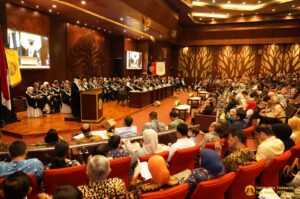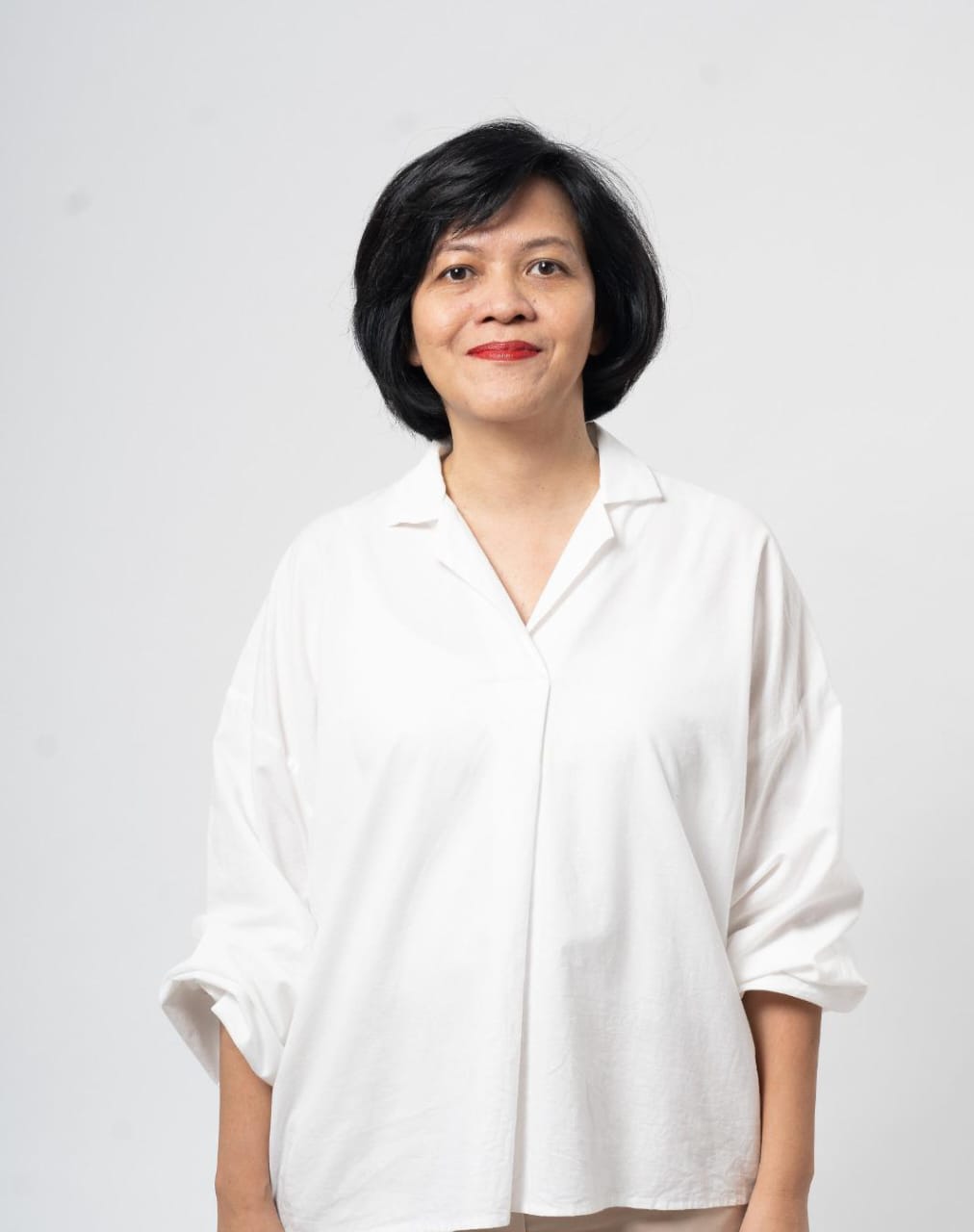
University of Indonesia (UI)inaugurated Prof. Dr. R. Tuty Nur Mutia, S.S., M.Hum., as a professor in the field of History, Faculty of Humanities (FIB), this morning (Wednesday, 13/12). On this occasion, she read her inauguration speech entitled “A Decade of China’s Belt and Road Initiative: A Critical Review of Historical Instrumentalization” at the Convention Hall, UI Depok Campus.
In her speech, she said that in 2013, the President of the People’s Republic of China (PRC) Xi Jinping had chosen Kazakhstan and Jakarta (Indonesia) as places to convey his ideas about revitalizing the Silk Road through two schemes, namely the ‘Silk Road Economic Belt’ and the ‘Maritime Silk Road of the 21st Century’. In history, the ‘silk route’ was China’s trade route with various regions of the world that was formed during the Western Han dynasty era. Previously, in 2012-2013, Xi emphasized his vision and mission that the Chinese nation must be able to realize the ‘Chinese Dream’ which has been the dream of all people since the dynastic era. One of these dreams was formulated as the revival of the glory of the Chinese nation on the 100th anniversary of the founding of the PRC, namely in 2049.
Based on the narrative of his speeches, Prof. Tuty saw that since the beginning of his rule, Xi Jinping had used the jargon of China’s strength and glory which was recorded in history thousands of years ago. This phenomenon has caused Xi to be known as a leader who bases his claims to power and his party’s legitimacy on Chinese history. From this phenomenon, Prof. Tuty conducted research and investigations into the extent to which Xi Jinping and the PRC are using history as an instrument to restore China’s glory and strength domestically and internationally through the Belt and Road Initiative (BRI).
“The use of history as an instrument is closely related to reconstructing the main components of public memory about trauma, glory and amnesia which are interconnected and overlapping, thus forming a rediscovery of the selected history. The instrumentalization of history is not a wrong action, but it requires ‘vigilance’ in responding to possible misleading deviations. Therefore, systematic investigations and discussions directed as critical reviews were carried out in the categories of glorification, ideology and self-identification aspects contained in the narrative of Xi’s speeches related to BRI,” said Prof. Tuty.
According to her, Xi Jinping’s choice of certain memories containing glory and harmony and setting aside the facts of China’s past failures as historical amnesia, shows Xi Jinping’s reconstruction technique as an agent-historian using the pattern of historical narrativism/narratology. Xi in the last ten years has reconstructed a new narrative based on facts supported by historical documents of the Chinese nation, and Confucian moral ethics as a framework for a new code of conduct in international relations, where the identity of the Chinese nation is no longer ‘a victim of an era of humiliation’, but rather a ‘great nation’ ready to help in realizing a ‘Global Community With a Shared Future’.
Furthermore, Prof. Tuty said that in a decade of BRI implementation, Xi Jinping’s record of achievements was very significant, including evidence from the PRC’s total investment reaching USD 1 trillion and the number of participants reaching 152 countries and 32 international organizations. However, it is also accompanied by a number of quite worrying problems, including the loss of livelihoods of local residents, land grabbing, deforestation, and economic instability where there are a number of countries whose debts to China are increasing and thus falling into the ‘trap debt’.
“Indonesia, which is also part of BRI, should carefully understand the background, objectives and possibilities for further use of BRI, in order to be wiser when deciding on Chinese investment projects under the BRI scheme. Indonesia must also be prepared to face various possibilities that could occur and must immediately do something to anticipate undesirable things happening,” said Prof. Tuty. At the inauguration, member of the Presidential Advisory Council, Dr. Agung Laksono; Indonesian Ambassador to Uzbekistan concurrently to Kazakhstan, Kyrgyzstan, Tajikistan 2010—2014 Mohamad Asruchin; and Chairman of the Central Society of Indonesian Historians (MSI) Prof. Dr. Agus Mulyana, M. Hum was present.
Apart from teaching, Prof. Tuty is also active in research activities related to contemporary Chinese history and the history of PRC diplomacy, which is currently focused on studying Chinese soft power and the Indonesia-China strategic partnership. The results of this research have been published, including the titles Reassessing China’s Soft Power in Indonesia: A Critical Overview on China’s Cultural Soft Power (2023) and Diaspora in Indonesia-China Relationship at The Comprehensive Strategic Partnership Era (2023). Prof. Tuty is one of the FIB UI lecturers in the Department of History and the Chinese Undergraduate Study Program. Apart from that, she also teaches in postgraduate classes, namely the East Asian Masters Program, the History Studies Masters Program, and the History Studies Doctoral Program. She completed his Bachelor’s degree in Chinese Literature at UI in 1986. Then, she continued her studies at the FIB UI History Science Postgraduate Program by graduating with a Master’s degree in 2000 and graduating with a Doctoral degree in 2013.



